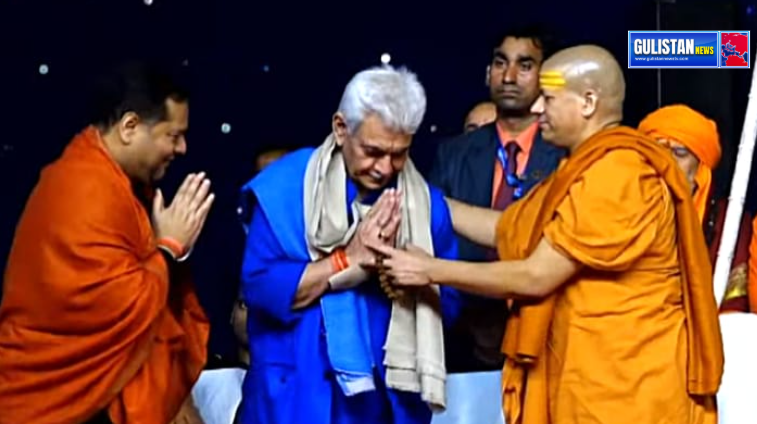Union Home Minister Amit Shah Tuesday (April 10) extended his warm greetings to Kashmiri Pandit community members.
Shah at the occasion prayed for good health, prosperity and happiness.
Taking to micro-blogging site X (formerly Twitter) the Union Home Minister said, “Greetings to our Kashmiri Pandit sisters and brothers on Navreh. May this new year bless all with a bounty of good health, prosperity, and happiness”.
Navreh (Kashmiri pronunciation: [naw rʲah]) or Kashmiri New Year is the celebration of the first day of the Kashmiri new year by Kashmiri Hindus, with the largest Kashmiri Hindu community being the Kashmiri Pandits. Kashmiri Pandits dedicate Navreh festival to their Goddess Sharika and pay homage to her during the festival. It takes place on the first day of the bright half (Shukla Paksha) on the month of Chaitra (March–April) of the Kashmiri Hindu calendar.
History
According to the legend, Mother Goddess Sharika’s dwelling was on Sharika Parvata (Hari Parbat) where the celebrated Sapta Rishis gathered. On an auspicious day of 1st Chaitra, as the first ray of sun fell on Chakreshwari and paid honor to her. This moment is considered the beginning of New Year and the Saptarishi era for astrologers. Kashmiri Hindu Tradition and astronomical calculations date the beginning of this era to 3076 BC.
On the eve of the new year, the priest (kulguru) of the family provides a religious almanac (nachipatra) for the next year and a scroll (kreel pach) of the local goddess. Then a customary large plate (thali) is filled with rice and offerings like almanac, scroll, dried and fresh flowers, wye herb, new grass, curd, walnuts, pen, ink container, gold and silver coins, salt, cooked rice, wheat cakes and bread and covered on the eve of Navreh. On the day of the new year, the family members gather together, uncover the thali and view it on the holy day.
The rice and coins represent our daily bread and wealth, the pen and paper a reminder of the quest for learning, the mirror represents retrospection. The calendar signals the changing time and the Deity the Universal Constant, and they together are a reminder of the constancy of changing time. The bitter herb is reminiscent of life’s bitter aspects, to be taken in stride alongside the good. The bitter herb ‘wye’ is usually eaten with walnuts to bring wholeness of life’s experiences in the admixture.
Also Read: PM Modi extends wishes on Navreh Poshte









